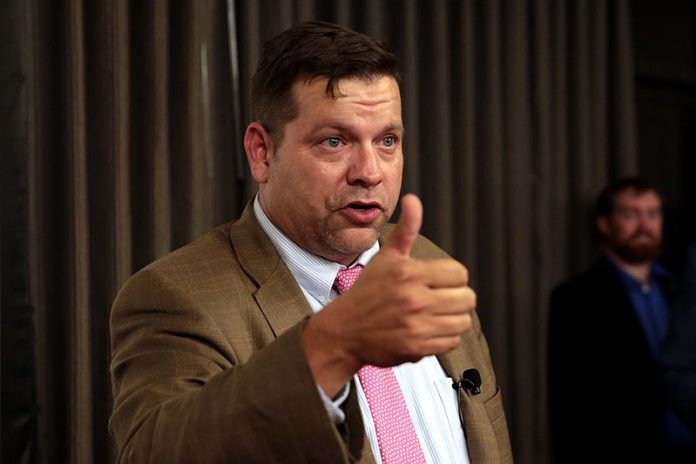Thomas Garrett, the Republican United States Representative from the state of Virginia made an announcement this week that he would not be running for re-election in November in order to focus on recovering from alcoholism.
Making the statement Monday, he said that it was the hardest public statement he ever had to make. It came as a surprise to many, he had assured his party and others that there was no way that he was not going to be back in 2019 as a member of Congress.
Recently Garrett also came under scrutiny when Politico reported that he and his wife order staff to walk their dog, carry groceries, and perform other personal tasks that are prohibited by House ethic rules.
“This is because life is about priorities and values,” he said, “and for the most part, I am proud of mine. The tragedy is any person–Republican, Democrat, or independent–who has known me for any period of time knows two things: I am a good man and I am an alcoholic.”
Garrett is the 48th Republican that will not run for r-election this fall, according to the House Press Gallery.
It isn’t the first time someone from Congress to address a drinking or drug problem. The former Representative Patrick Kennedy of Rhode Island is the most well-known. In 2011 he retired to focus on recovery from bipolar disorder and problems with substance abuse.
After getting sober, Kennedy has become a prominent figure and advocate for recovery, lending his voice to the community of people recovering from addiction.
“OxyContin was what I used for years, but I’m an addict so it doesn’t matter what it is,” he said in a 2016 podcast interview. “I used benzodiazepines, alcohol, stimulants, Adderall, cocaine, you name it.”
Kennedy, and now Garrett, are part of a recovery community that exists among the members of Congress.
“We don’t talk about addiction in society,” Kennedy said, “and we don’t talk about it in Congress. Part of the reason is because of social stigma, but what members of Congress there is additional worry about how it will impact their political careers.”
















